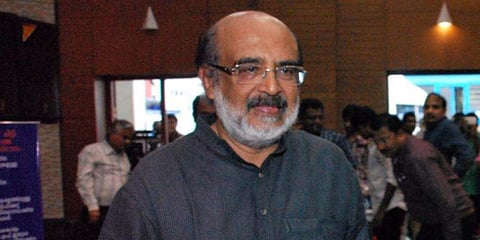

THIRUVANANTHAPURAM: Setting a new precedent in the assembly, the CAG report was tabled in the House amid the strong objection of finance minister Thomas Isaac. This is the first time in the history of assembly that the CAG report was tabled with an objection note of the finance minister, which was strongly opposed by the Opposition.
As expected, the CAG report tabled in the assembly cast serious aspersions on the transparency of the KIIFB, much to the chagrin of the finance department. The report said that the state government was saying the KIIFB borrowings were contingent liabilities.
But it contradicted the finance department contentions saying the borrowings would become a liability on the state government when there is a default by the KIIFB in repayment. The KIIFB was arguing that it can repay its liabilities using the petroleum cess and share of motor vehicle tax being received every year from the state government.
But the CAG report refuted the contention saying that if any state government borrows money in the name of any PSU or AB which has no independent source of income and the loans are to be repaid by setting apart a share of the government's own resources, the loan is not a contingent liability as termed by the state government but a liability on its own income.
As the state government chose to raise funds in the name of KIIFB and the debt is to be discharged from the government’s own revenue such as cess on petroleum and a part of the motor vehicle tax, it has definitely created a liability on its own revenue resources, the report said.
This is a classic case of off budget borrowings which bypass the limits set on government borrowings under article 293 of the Constitution of India, the report said. Creating such liabilities without disclosing them in the budget raises questions both of transparency and of inter-generational equity. Merely not showing the borrowing in the budget does not mean that liability of discharging it from the state revenues will disappear, the report said.
Before tabling the report, finance minister Thomas Isaac informed the assembly that the CAG had seriously violated the procedure in the manner of preparation and submission of the state finance audit report. “Due to the procedural violations, the finance department is forced to table the report with audit objections,” he said.